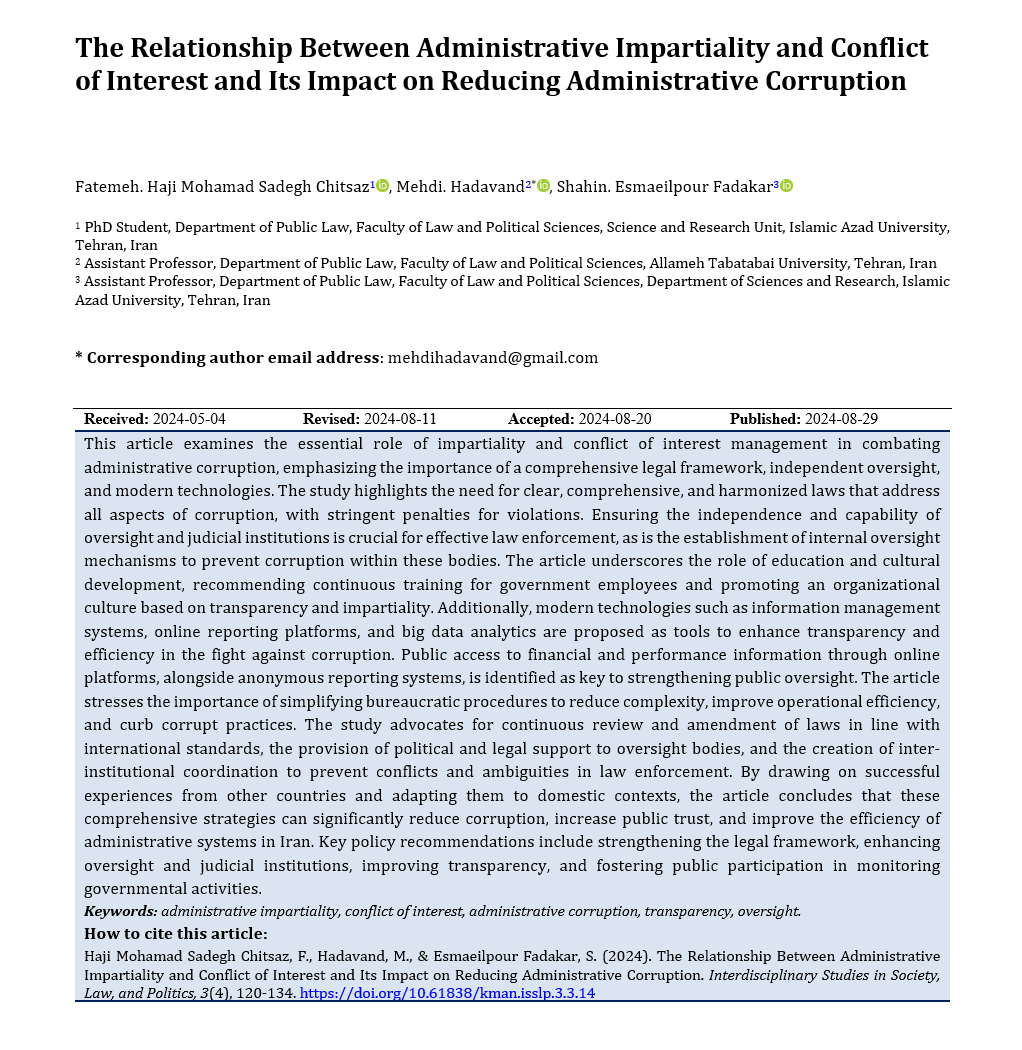The Relationship Between Administrative Impartiality and Conflict of Interest and Its Impact on Reducing Administrative Corruption
Keywords:
administrative impartiality, conflict of interest, administrative corruption, transparency, oversightAbstract
This article examines the essential role of impartiality and conflict of interest management in combating administrative corruption, emphasizing the importance of a comprehensive legal framework, independent oversight, and modern technologies. The study highlights the need for clear, comprehensive, and harmonized laws that address all aspects of corruption, with stringent penalties for violations. Ensuring the independence and capability of oversight and judicial institutions is crucial for effective law enforcement, as is the establishment of internal oversight mechanisms to prevent corruption within these bodies. The article underscores the role of education and cultural development, recommending continuous training for government employees and promoting an organizational culture based on transparency and impartiality. Additionally, modern technologies such as information management systems, online reporting platforms, and big data analytics are proposed as tools to enhance transparency and efficiency in the fight against corruption. Public access to financial and performance information through online platforms, alongside anonymous reporting systems, is identified as key to strengthening public oversight. The article stresses the importance of simplifying bureaucratic procedures to reduce complexity, improve operational efficiency, and curb corrupt practices. The study advocates for continuous review and amendment of laws in line with international standards, the provision of political and legal support to oversight bodies, and the creation of inter-institutional coordination to prevent conflicts and ambiguities in law enforcement. By drawing on successful experiences from other countries and adapting them to domestic contexts, the article concludes that these comprehensive strategies can significantly reduce corruption, increase public trust, and improve the efficiency of administrative systems in Iran. Key policy recommendations include strengthening the legal framework, enhancing oversight and judicial institutions, improving transparency, and fostering public participation in monitoring governmental activities.
Downloads






